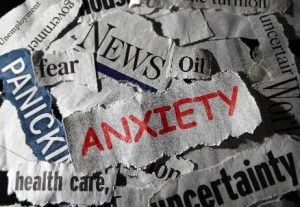
Burnout is on the rise. In 2015, The World Health Organization predicted that burnout would become a global pandemic within a decade. A 2016 study by Morar Consulting validated this warning when it showed ninety five percent “…of HR leaders said employee burnout is sabotaging workforce retention.” But burnout is not limited to managers and employees. Caregivers, entrepreneurs, professionals, and those who are socially conscious are at risk too. Why are stress levels so high?
We no longer live in a time when we have to work physically hard to haul water and chop wood for a fire. Yet, many of us are still exhausted and frazzled. I’ve often wondered why this is the case – after all, our lives are presumably so much easier.
Yes, I’m ready
But Are They?
Our work places are complex. We need to manage large amounts of information that is changing all the time. We are also expected to be on call virtually 24 hours a day and perform at a high level — consistently.
Our families need us too, and in ways that are different than they used to be. Rates of anxiety and stress-related illnesses are affecting professionals, parents and children alike at unprecedented rates. “As many as 1 in 5 children and youth in Ontario will experience some form of mental health problem. [1] “A survey by the Canadian Medical Association found that “…one in four reported elevated levels of burnout and one in three screened positivefor depression.”
Yes, I’m ready
For many of us, concerns about the environment, our security, and the health of our democracies may also increase our sense of vulnerability and helplessness. When everything is changing and nothing is certain, the cost of caring may feel as if it is too high.
We are all dancing as fast as we can. And we are doing it in office buildings, away from nature, from social and spiritual supports, and from ourselves.
The result can be physical exhaustion, mental fog, and a hollowing of the soul. Dr. Herbert Freudenberger wrote that burnout is when “…inner resources are consumed as if by fire, leaving a great emptiness inside.” If you are experiencing burnout fatigue, no doubt you can relate to this analogy.
Do You Recognize These Symptoms?
Burnout symptoms can look like any combination of the following:
- Getting sick more often
- Loss of focus and concentration
- Forgetfulness
- Irritability
- Insomnia
- Chronic fatigue
- Depression and/or anxiety
“How Did I Get Here?”
Burnout does not happen overnight. It creeps in slowly. Sometimes we don’t know it is even happening.
If you are experiencing burnout, you may be judging yourself or wondering how you got into this situation. There is no question that this level of vulnerability is scary. You may be afraid you will lose your job, your marriage or your life as you know it.
You Can Turn Things Around
Instead of focusing on how you got here, choose to focus on the skills of resilience. Put your precious energy reserves where they will count the most. The central goal is to create a culture of sustainable creativity inside yourself.¿
Even in this current state of exhaustion, you are your best ally in making the necessary changes. The choices you make about how you choose to see your situation, what steps you take to recover, and your openness to creative solutions will serve you now and in the long run. No one else can do it for you. With one small step at a time, you can recover your resilience, strength and energy.
What Is Resilience?
Simply put, resilience is the ability to recover from setbacks, adapt to changing circumstances and continue to move forward.
So, why do some people seem to survive (and thrive) while others struggle more? What are the secrets to recovering, adapting and persevering?
It’s Not the Circumstances That Matter
I have known holocaust survivors as well as people who seemed to have never suffered extreme violence or deprivation. In these cases, individual circumstances did not determine how resilient they were. Some buckled under the weight of their own pain while others forged ahead with passionate focus on something larger than the events they were experiencing.
Clearly, circumstances are not the key determinant of resilience.
In her book “How Resilience Works,” Diane Coutu identified that resilience depends on our ability to steadfastly accept reality, hold onto our faith that life has meaning, and be innovative in how we respond to stress.
Mindset Matters
Dr. Carol Dweck’s groundbreaking research reinforces this idea. Her work showed that success comes when a growth mindset meets adversity. When we believe we are capable of learning and growing, we are more likely to find adaptive solutions. All challenges are learning opportunities rather than obstacles to be overcome.
You Are Your Greatest Resource
If you cannot change the circumstances that are depleting you, you can make better choices about how to respond to them.
In a study completed by Harvard Business Review, data showed that 90% of those surveyed said their resilience came from inside themselves.
From Harvard Business Review:
Start Your Recovery Now
You can feel better. Recovering from setbacks is part of life and an opportunity to make good choices. As you take the steps below, you will recover AND become an inner warrior, skilled at accepting reality, adapting and forging ahead with confidence.
1. Recover from Setbacks
Accept Reality
Accept the reality you are facing. Be honest with yourself about what is going on. Acknowledge it. You do not have to like it to accept it. You may be feeling angry and dejected and still accept the situation and all your feelings that go with it. In a way, this is a form of letting go.
Accept the reality of your limits and needs – realistically. Honour them as valuable cues and be prepared to act on them: take a nap, reduce your work hours, delegate, delegate, delegate. High achievers who do everything themselves are most at risk for burnout.
Pay attention to reality inside of you. What needs to change for you to become a priority in your own life? What stories are you telling yourself that increase your stress?
Know what really feeds you and say “yes” to more of it, e.g., nourishing food, nature, vigorous exercise, contact with good friends, or a spiritual practice you may have been putting off.
Know what really drains you and limit your exposure. E.g., say “No” to anyone and anything that drains you. “No” is not selfish. It is appropriate self-care.
See the Meaning
Life is meaningful even when bad things happen. A good life is not an easy one, but one in which we develop through adversity.
Surround yourself with people who understand and love you. Difficult times require lots of loving kindness and support.
What is meaningful to you? Deliberately look for it and bring more of it into your life. Keep a gratitude journal. List three things you feel grateful for. This is a small but highly effective way to “ gladden the mind”.
Look After Your Energy Body
Look after the subtle energy systems of your body.
Stress creates imbalance resulting in illness or pain. Ground yourself. Breathe. Exercise and drink plenty of water. Your body will serve you if you look after it. Consider embracing a practice that restores balance such as qi gong, edu-kinesiology or yoga. Go slowly and always at your pace.
2. Adapt to the New Situation
Highly adaptable people are willing to:
- Accept that there is a new situation (see above)
- Learn – For example, “What is the lesson in this experience for my highest learning? Is there another perspective I can take where there are no winners and losers?”
- Experiment – “What risk am I willing to take in this new situation so it works for me?”
- Be curious and open to possible new solutions – “What have I not thought of yet?”
- Be willing to ask for help if you need it.
- Let go of long-standing patterns such as self-doubt, perfectionism, procrastination, comparing yourself to others, or reliance on doing the same thing over and over again even though it does not work. These patterns can be overcome — and must be overcome — for true healing.
3. Keep Moving Ahead
One foot in front of the other really does work. Here are some ways to keep going when you feel you’ve stalled:
- Commit to small steps – follow the Kaizen way: This refers to a Japanese manufacturing philosophy which reflects research findings that truly transformational change occurs with a series of small steps. You only need to take one best small step today, then another tomorrow, to create outstanding outcomes.
- Expect digressions – healing is not linear. When it feels like something is in the way, treat it as if it IS the way. Instead of fighting it, see it as an opportunity to get back to what matters. Returning again and again to your recovery and health is the essence of resilience.
- Let go of perfectionism – it is not required to heal and become strong again. It will, however, make you lose focus on your next best step. Perfectionism can keep us going in circles trying to perfect something that never needed to be perfect in the first place.
- When letting go feels too hard, find one small step that is different from the one you usually take. And do it!
To get started on your journey of recovery and strengthening, decide to take one step that resonates the most for you. Practice it every day. When you are ready, you can add another.
Learning how to BE – as if the world is not on fire – is a practice. You can start right now.
Yes, I’m ready








 Getting Out From Under Toxic Leadership
Getting Out From Under Toxic Leadership



